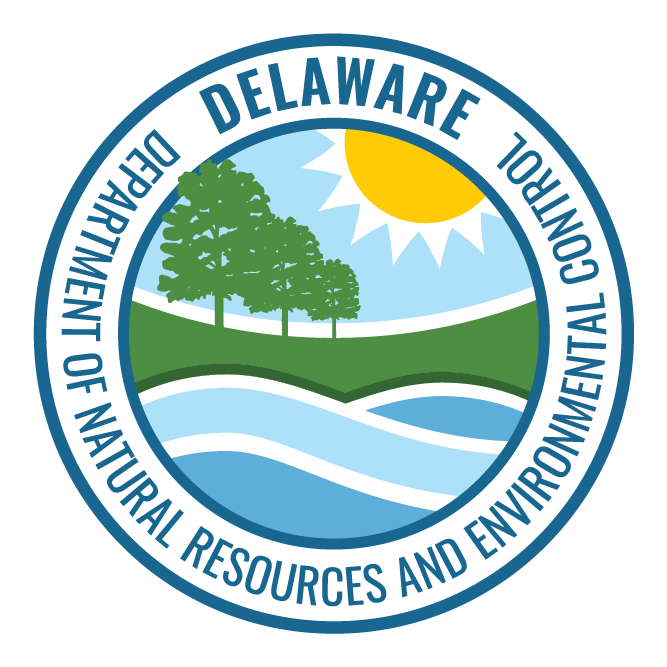Pages Categorized With: "Waste Management"
Compliance and Permitting Training
DNREC’s Compliance and Permitting Section (CAPS) offers training on waste management regulations.Contact Us
Compliance and Permitting Section 302-739-9403
Episodic Events for Hazardous Waste Generators
A facility may incur an episodic event — planned or unplanned — wherein an increase in the generation of hazardous wastes exceeds the calendar month quantity limits for the generator’s usual category. Under the regulations, Very Small Quantity Generators and Small Quantity Generators are allowed episodic events. [panelSolid and Hazardous Waste Transporter Permits
The transportation of non-hazardous solid waste (including scrap tires and infectious waste), and hazardous waste (including used oil), is subject to regulation in Delaware.Contact Us
Compliance and Permitting Transporter Permits 89 Kings Highway Dover, DE 19901 302-739-9403
Large Quantity Generators
If a facility generates hazardous waste in quantities greater than 1,000 kilograms (≈2,200 pounds) or generates acutely hazardous waste in quantities greater than 1 kilogram (≈2.2 pounds) in a calendar month, that facility is defined, under Delaware’s Regulations Governing Hazardous Waste, as a Large Quantity Generator (LQG). [panelElectronic Waste
In this world of rapidly changing technology, disposal of electronic waste (e-waste) has created a growing waste stream. The Division of Waste and Hazardous Substances provides guidance for the management of these wastes by businesses under the state’s hazardous waste regulations.Contact Us
Universal Waste Rule
Universal wastes are items that are generated by a large number of businesses in relatively small quantities. Five hazardous wastes are identified as universal wastes under Section 273 of Delaware’s Regulations Governing Hazardous Waste. They are batteries, mercury-containing equipment, obsolete agricultural pesticides, lamps and aerosol cans. [panelSolvent-Contaminated Cloth Wipes
The Delaware Department of Natural Resources and Environmental Control, Compliance and Permitting Section provides the following guidance on the management of cloth wipes, including shop towels, and rags contaminated with hazardous wastes identified via characteristic or listing in the Delaware Regulations Governing Hazardous Waste (7 DE Admin. Code 1302).Managing Fluorescent Lamps
The following are answers to commonly asked questions regarding the management of waste fluorescent lamps that exceed the regulatory limit for mercury via the Toxicity Characteristic Leaching Procedure (TCLP).Contact Us
Compliance and Permitting Section 302-739-9403
Very Small Quantity Generators
If a facility generates hazardous waste in quantities of less than 100 kilograms (≈220 pounds or approximately 25 gallons) or is the generator of acutely hazardous waste in quantities of less than 1 kilogram (≈2 pounds) in a calendar month, that facility is defined, under Delaware’s Regulations Governing Hazardous Waste, as a Very Small QuantityAuto Repair Shop Waste
Auto Repair Shops generate hazardous waste that must be managed in accordance with Delaware’s Regulations Governing Hazardous Waste. Hazardous waste mismanagement adversely impacts human health and the environment.Contact Us
Compliance and Permitting Section 302-739-9403
Salvage Yards
Salvage yards are an important part of the economy. They provide a valuable service, helping recycle what can be recycled and dispose of what cannot.Contact Us
Compliance and Permitting Section 302-739-9403
Managing Waste
The Division of Waste and Hazardous Substances is responsible for controlling the storage, transport and disposal of solid, infectious and hazardous waste in Delaware. The Division also coordinates recycling and yard waste management. Solid Waste HazardousSolid Waste
Solid Waste is any garbage, refuse, refuse-derived fuel, waste wood from demolition or construction, sludge from treatment plants, or other discarded material. It can include wastes resulting from industrial, commercial, mining and agricultural operations, and from community activities.Contact Us
Hazardous Waste
Hazardous wastes are solid wastes that are inherently dangerous to handle or dispose. They include chemicals such as solvents, mercury in thermometers, and lead in paint. The Division of Waste and Hazardous Substances regulates transporters, businesses and industry so that hazardous wastes are managed properly and cleaned up in the event of a spill orUsed Oil Management
The following provides an overview related to commonly asked questions about the proper management and disposal of used oil regulated by Part 279 of Delaware’s Regulations Governing Hazardous Waste.Contact Us
Mercury and Mercury-Containing Equipment
Elemental mercury is liquid at room temperature, with a metallic and shiny appearance. It is conductive and highly volatile. Mercury can have serious health impacts on humans.Contact Us
Compliance and Permitting Section 302-739-9403
Small Quantity Generators
If a facility generates hazardous waste in quantities between 100 kilograms (≈220 pounds) and 1,000 kilograms (≈2,200 pounds) and generates acutely hazardous waste in quantities of less than 1 kilogram (≈2.2 pounds) in a calendar month, that facility is defined, under Delaware’s Regulations Governing Hazardous Waste, as a Small Quantity Generator (SQG). [column md=”5″Solid Waste Facilities
The Compliance and Permitting Section (CAPS) of the DNREC Division of Waste and Hazardous Substances issues permits for all solid and hazardous waste facilities, such as operating and closed landfills and transfer stations, recycling, composting and resource recovery facilities.Contact Us
Managing Used Aerosol Cans
For businesses, aerosol cans pose a unique hazardous waste determination problem because they consist of three different types of materials, each of which may be classified as hazardous waste — the can itself, liquid product contained in the can, and the gaseous propellant.Contact Us
Managing Common Household Wastes
Many types of hazardous waste items used by households can be disposed of in household trash, taken to a Delaware Solid Waste Authority (DSWA) recycling drop-off center, or taken to a DSWA Household Hazardous Waste Collection Event. [button type=”primary” link=”#”Infectious Waste
The DNREC Division of Waste and Hazardous Substances regulates the treatment, packaging, storage, transportation, and disposal of infectious waste in the state.Contact Us
Jared Weiss Environmental Scientist 302-739-9403
Registrations and Permits Infectious Waste Generator




